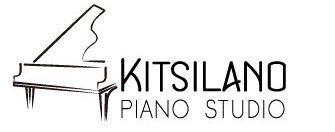Royal Conservatory of Music (RCM) is the standard piano method system in Canada. It is used to measure the student’s ability along with providing books for each grade in different styles. Also, it offers exams with certification at each grade level. If you are about to give an exam for Royal Conservatory of Music (RCM), then here is how you can prepare for it in the most efficient manner:
Be Adequately Prepared
You want to be sure about your preparedness to the next level. You should spend 2-3 years if you are a beginner before taking exams. Until and unless you have the right maturity level, don’t appear for the exams because you won’t get the desired credits. While some students like doing master classes or recitals where others opt for competitions. The key aspect to learn to love music and find out what you like.
Plan for long term
If you feel you’re ready, it can take around 6-8 months to prepare for junior exam whereas the intermediate exams can take up to a whole year. Senior exams take even longer than that. Make sure to learn on an everyday basis to reduce the stress as the exams approach. You should work on ear training and sight-reading, as these cover over 30 marks on the RCM exam.
Be careful when picking pieces
Pick the pieces present in the syllabus and not the current books because it will help you learn something unique and the examiner will have something different to hear. You have the option of replacing one study with ‘Teacher’s Own Choice’ or ‘Popular Section’ in the RCM system.
Memorize in sections
There are three levels of memory for pieces:
- Play at home, but it won’t be good at the lesson.
- Play at the lesson, but still not performance ready.
- Play for anyone like an expert.
Divide pieces according to the phrasing and form. Try to learn and memorize pieces ‘Hands Together’ (HT) and ‘Hands Separately’ (HS) in sections. You must have the ability to start at any section, HT, LH or RH. While performing, just move onto the next section without going back ever. You must also practice ‘jumping’ while playing, which means, going to the section that the teacher wants you to play.
Performance Experience
You must perform each piece at least one time in recitals or master class three weeks prior to the exam. If possible, do a video of each piece for stimulating the exam experience. Each student should perform their pieces, one after the other like a concert group.
Maintenance Practice
It is hard for students to keep fast-paced pieces at the performance level. You need to take help of a metronome and pull the piece back to where you want it. Just keep in mind that you should control the music rather than the music controlling you. Slow metronome practice will help you develop a maintenance speed for all fast pieces.
Plan the order of your exam
The RCM exam system lets you choose the order of the exam, whether you want to do the pieces or techniques and studies. You should begin with the technique because then, you get the chance to try the piano and warm up your fingers for the exam. The next should be studies, which you shouldn’t memorize. Just select the order of songs so that the beginning and end can be done with the strongest pieces. A blend of slow and fast songs will add interest and variety. Lastly, you should go for ear training and sight-reading.
Mock Exams
If you want to take mock exams, make sure to take them on the last three lessons before the exam. By the end of the third mock, you will feel a lot more confident. Appear for the mock as if it is the real exam to get familiar with the environment and stress levels. If you are going for a practical piano exam, then you will find several components such as sight-reading, ear training, pieces, studies, and technique. You need to be an expert in all these components before taking a piano exam to further excel.In case of any issue, you can always consult an experienced piano teacher for quick assistance to prepare you for your RCM performance and theory/history exams.
